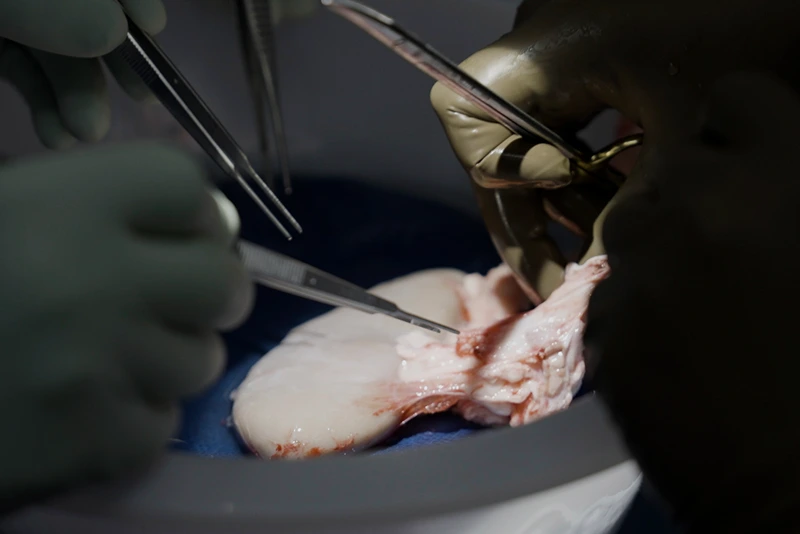

OAN’s Abril Elfi
6:03 PM – Wednesday, August 16, 2023
Surgeons in New York transplanted a pig’s kidney into a man who was brain dead. It has been functioning regularly for more than a month.
Advertisement
On Wednesday, New York University (NYU) Langone Health announced that although the donor of the body was already deceased, this marks the longest a pig kidney has functioned in a person.
Scientists around the nation are fighting for the knowledge necessary to use animal organs to save human lives. It is reported that the bodies donated for research serve as an amazing practice.
Doctor Robert Montgomery, the director of NYU Langone’s transplant institute, talked to the press about the experiment.
“Is this organ really going to work like a human organ? So far it’s looking like it is,” said Montgomery. “It looks even better than a human kidney.”
On July 14th, Montgomery replaced a dead man’s kidneys with a single kidney from a genetically modified pig and watched it start producing urine right away.
The family of 57-year-old Maurice “Mo” Miller, who passed away from cancer, agreed to give his body to the experiment because they believed that pig kidneys might one day assist ease to the serious lack of transplantable organs.
His sister, Mary Miller-Duffy, told the press she struggled about her decision.
“But he liked helping others and I think this is what my brother would want. So I offered my brother to them,” she said. “He’s going to be in the medical books, and he will live on forever.”
Because people’s immune systems reject foreign tissue, attempts at xenotransplantation, or animal-to-human transplants, have been unsuccessful for decades. Now, scientists are utilizing pigs that have had their organs genetically altered to better match human bodies.
The NYU experiment is one of a number of innovations designed to speed the beginning of such clinical studies.
On Wednesday, the University of Alabama at Birmingham announced yet another significant achievement of a set of pig kidneys that were transplanted successfully and functioned regularly for seven days inside another donated body.
Montgomery stated that these kinds of experiments are critical to answer remaining questions “in a setting where we’re not putting someone’s life in jeopardy.”
The transplant waiting list in the U.S has more than 100,000 patients on it, and thousands of them pass away every year waiting for a donation.
Stay informed! Receive breaking news blasts directly to your inbox for free. Subscribe here. https://www.oann.com/alerts





Be the first to comment